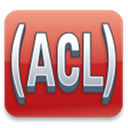Top MIT Scheme Alternatives for Robust Lisp Development
MIT/GNU Scheme is a powerful implementation of the Scheme programming language, offering an interpreter, compiler, debugger, and an Emacs-like editor, making it ideal for developing large applications with a rapid development cycle. However, for various reasons—be it specific feature needs, platform compatibility, or a preference for different Lisp dialects—developers often seek robust MIT Scheme alternative options. This article explores some of the best replacements available, providing insights into their unique strengths and why they might be a better fit for your next project.
Top MIT Scheme Alternatives
Whether you're looking for a different Lisp dialect, enhanced debugging tools, or specific platform support, these alternatives offer diverse functionalities to meet your programming needs.

AUMS
AUMS is a Free Personal software available on Windows, offering a console-based interface and support for macros. While not a direct Lisp implementation, its macro capabilities might appeal to developers who appreciate the extensibility of MIT Scheme's environment for specialized tasks on Windows.

Hy
Hy is a fascinating Free and Open Source Lisp dialect embedded in Python, available for Mac, Windows, and Linux. It transforms Lisp code into the Python Abstract Syntax Tree, giving you access to Python's extensive libraries and features like an interpreter, object-oriented programming, and scripting. This makes Hy an excellent MIT Scheme alternative for developers looking to leverage the power of Python within a Lisp paradigm.

Steel Bank Common Lisp
Steel Bank Common Lisp (SBCL) is a high-performance Common Lisp compiler, offering Free and Open Source software with a permissive license. Available for Mac, Windows, and Linux, SBCL stands out with its robust compiler and debugger, making it a strong MIT Scheme alternative for those prioritizing raw performance and comprehensive debugging capabilities in a Common Lisp environment.

CLISP
CLISP is a portable ANSI Common Lisp implementation and development environment that is Free and Open Source, supporting Mac, Windows, and Linux. It provides an interpreter, compiler, debugger, CLOS, MOP, FFI, Unicode, sockets, and CLX. Its comprehensive IDE features and multi-language support make it a versatile MIT Scheme alternative for developers seeking a full-featured Lisp development environment.

CMU Common Lisp
CMU Common Lisp (CMUCL) is a Free and Open Source, high-performance implementation of Common Lisp, running on most major Unix platforms including Mac and Linux. It largely conforms to ANSI Common Lisp standards. While it doesn't boast unique features beyond a solid implementation, its performance focus makes it a viable MIT Scheme alternative for projects where execution speed is paramount on Unix-like systems.

Clozure Common Lisp
Clozure CL (CCL) is a Free and Open Source Common Lisp implementation available for Mac, Windows, Linux, and BSD. Known for its fast compilation, excellent foreign function interface, and robust threading support, CCL is an excellent MIT Scheme alternative for developers who need a reliable and high-performance Common Lisp environment across various operating systems, particularly for concurrent programming.

Allegro CL
Allegro CL is a powerful dynamic object-oriented development system available as Free Personal software for Mac, Windows, Linux, and BSD. It is especially suited for enterprise-wide, complex application development. While it doesn't list specific features beyond its robust nature, its focus on enterprise solutions makes it a compelling MIT Scheme alternative for professional developers working on large-scale Lisp projects.

GNU Common Lisp
GNU Common Lisp (GCL) is the official Common Lisp for the GNU project, offering Free and Open Source availability for Windows, Linux, and BSD. It compiles to native object code using the system's C compiler, ensuring good performance and easy integration with C libraries. GCL serves as a solid MIT Scheme alternative for developers deeply embedded in the GNU ecosystem or those who prioritize seamless C integration and native compilation.
Choosing the right MIT Scheme alternative depends heavily on your project's specific requirements, your preferred Lisp dialect, and the development environment you're most comfortable with. We encourage you to explore these options further to find the best fit for your Lisp programming journey.